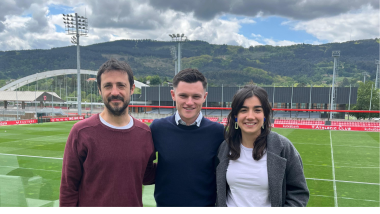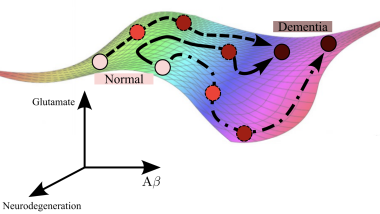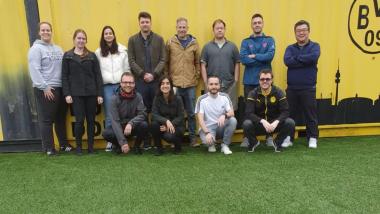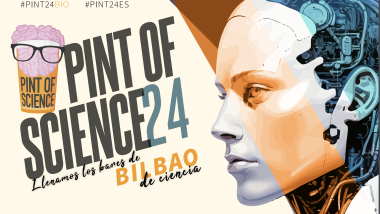MATH4Q, a mathematical approach to Ikur Strategy on Quantum Technologies
- During the month of January, BCAM has collaborated with the UPV/EHU Quantum center, DIPC, and the Department of Mathematics of the UPV/EHU in the kick off of the initiative MATH4Q (Mathematics For Quantum) within the IKUR strategy on Quantum Technologies.
During the month of January, BCAM has collaborated with the UPV/EHU Quantum center, DIPC, and the Department of Mathematics of the UPV/EHU in the kick off of the initiative MATH4Q (Mathematics For Quantum) within the IKUR strategy on Quantum Technologies.
This is how the first of the 2024 appointments of the IKUR Quantum Talks cycle took place. This is an initiative launched by Ikerbasque researchers Jean Bernard Bru, from the Basque Center for Applied Mathematics (BCAM-UPV/EHU), Geza Giedke, from the Donostia International Physics Center (DIPC) and Enrique Rico, from the UPV/EHU, leaders and specialists in quantum technologies in the Basque Country, with the aim of raising awareness of the scientific bases and potential of quantum technologies.
The cycle of activities kicked off on January 11 with a course given by Professor David Perez García (UCM & ICMAT, Madrid) at the seminar of the UPV/EHU's Mathematics Department. The course, organized by Enrique Rico and Luis Vega, focused on the role of functional inequalities, such as Poincaré or log-Sobolev inequalities, in some important problems associated with computation and quantum information.
On January 24-26, Professor Jan Philip Solovej traveled to Euskadi to give a series of talks and visit BCAM. Current President of the European Mathematical Society and Director of the QMATH research center (Copenhagen) on Mathematics of Quantum Theory, his research is at the frontier between mathematics and quantum physics and chemistry.
The first of his lectures, entitled 'On dilute quantum gases', could be enjoyed at the UPV/EHU's Salón de Grados. In it, he gave an overview of the mathematical description of quantum many-body systems, in particular, the ground states of gases of many interacting identical particles. Recent rigorous results on the energy of the ground state of Bose gases in the limit in which they become dilute were discussed.
The second talk, with a full house at the San Telmo Museum, called 'From Atoms to Stars: The Universe according to Pauli', was moderated by Aran García Lekue. The quantum world is full of surprising properties that escape human observation and intuition. However, throughout the 20th century, physics has gradually revealed many of these characteristics. It started from the Pauli exclusion principle on a journey through the cosmos to lead from the tiniest particles to the most gigantic celestial bodies to explain why the universe is the way it is.
On January 26 in the DIPC Seminar Room, this series of lectures by Professor Sovolej ended with 'The mathematics of the periodic table of the elements', where questions such as: 'Does the periodic structure persist for arbitrarily large atoms', or 'Is Aufbau's principle still valid for large atoms' were asked.
Finally, quantum information was also the subject of the talk given on January 25 by Professor Jozsef Pitrik of the Wigner Research Center for Physics and the Renyi Institute of Mathematics of Budapest. On this occasion the venue was the Seminar Room of BCAM, the organizer being Ikerbasque Professor Geza Toth, a member of the UPV/EHU Basque Center.
The entire cycle has been a success.
Related news
BCAM people
BCAM people
BCAM people




